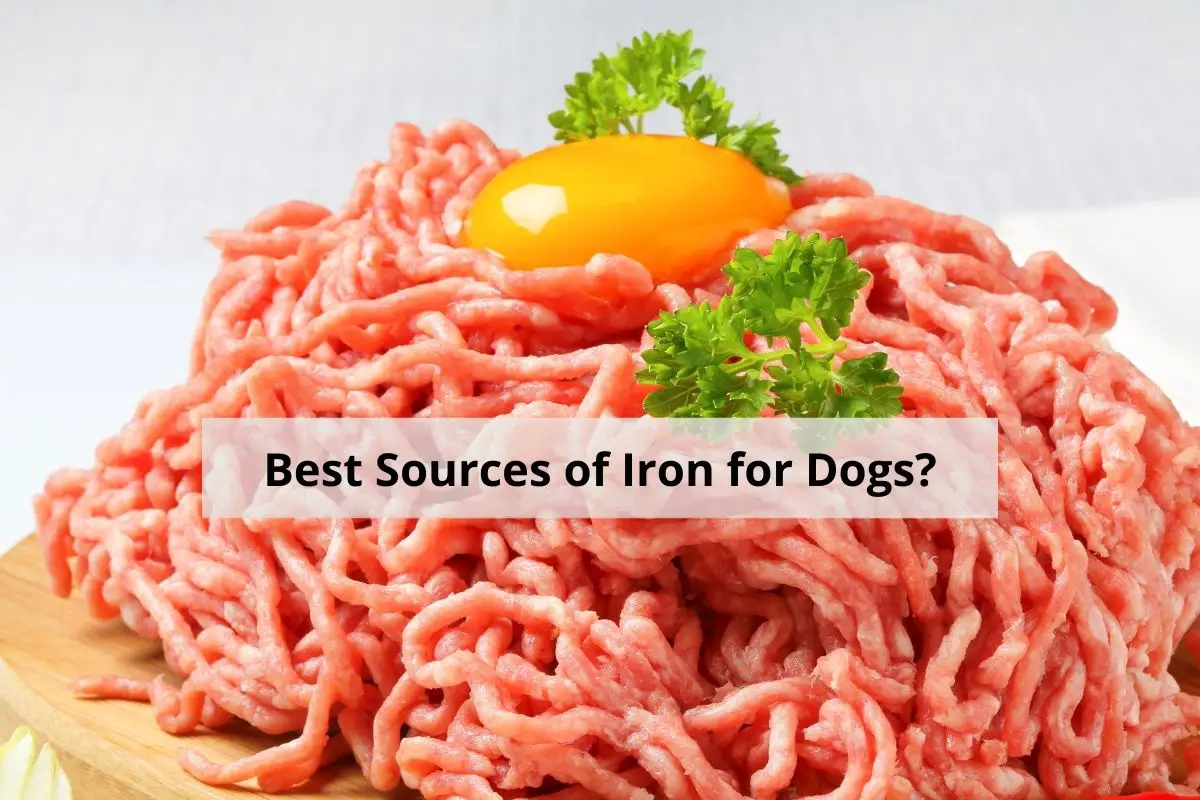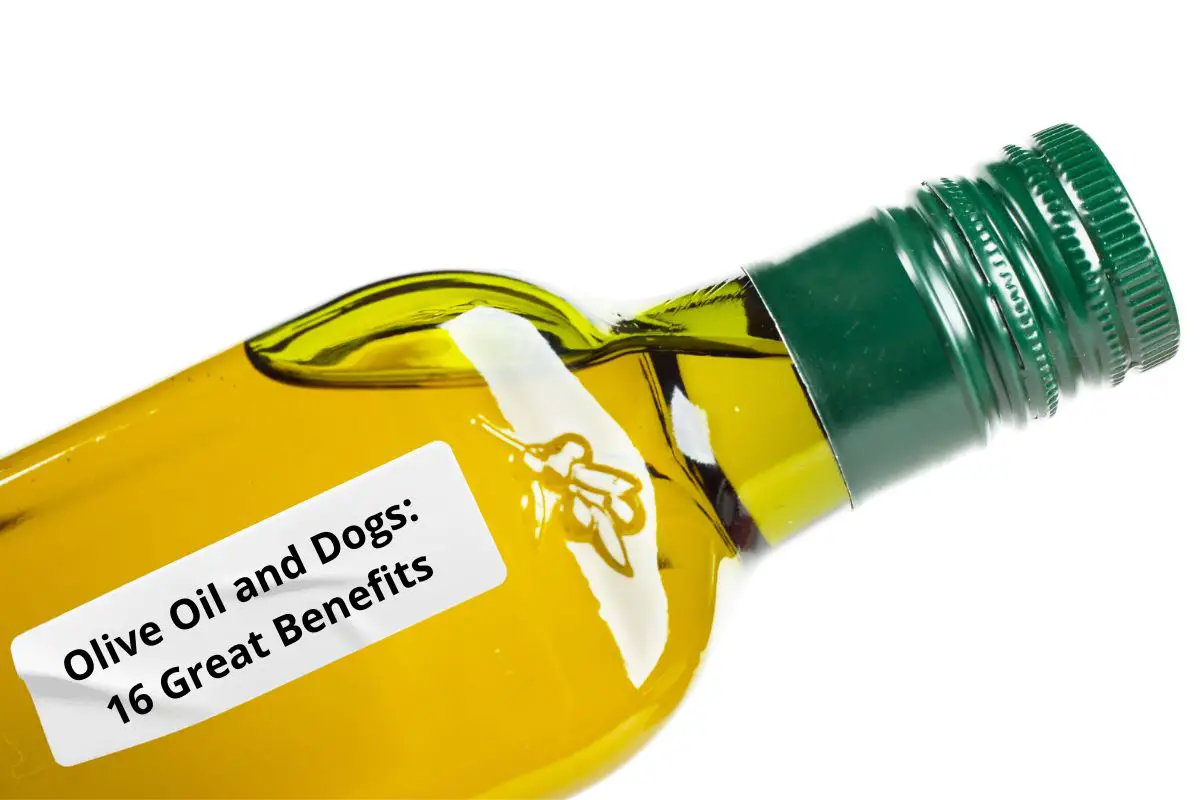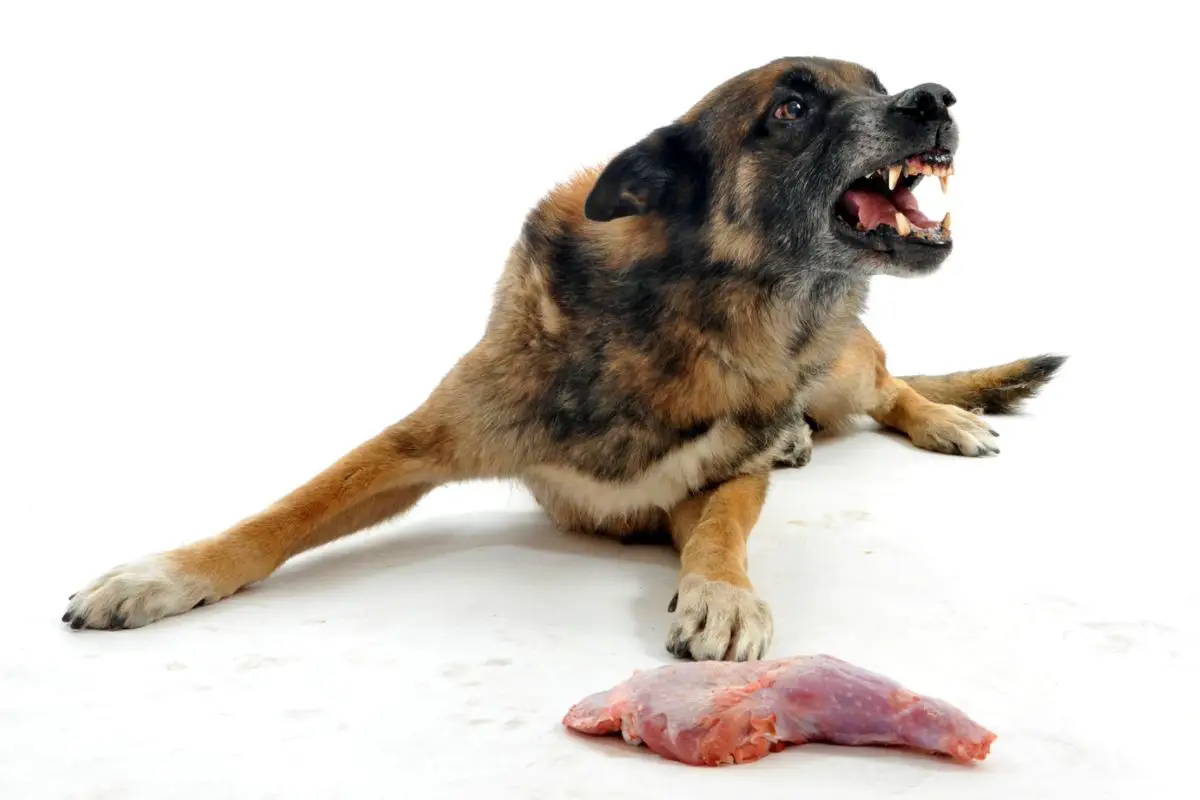This post contains affiliate links.
A healthy, balanced diet is essential for any and every dog breed. Ensuring your furry friend has enough nutrients and minerals in its food intake (especially iron) is key for keeping your pup happy and healthy!
Table of Contents
Here are some of the best sources of iron for dogs:
- Red meat
- Eggs
- Beef liver
- Spinach
- Sardines
- Chicken
- Salmon
- Chickpeas
- Black-eyed peas
- Green beans
I’ll elaborate on why the foods mentioned above are great iron sources for your companion and how they can benefit your dog. Keep reading to find out how to make the most of your furry friend’s mealtimes!
1. Red Meat
Red meat is one of the richest iron and protein sources, and most dogs love it! Red meat will give your pup a lot more energy, and it’ll also help your dog stay lean and fit. Red meat contains fatty acids such as Omega 3 and Omega 6, which keep your dog’s skin and coat healthy and shiny.
The abundant protein and iron content of red meat also contributes to building muscle mass in your pup, which strengthens its endurance and gives it the energy to run around and play without feeling fatigued or lethargic afterward!
2. Eggs
Amongst iron, eggs are filled with fatty and amino acids that support your furry friend’s general health and well-being. With folate and vitamin A and B12, eggs are an excellent choice of food to give your dog strong teeth, bones, skin, and fur.
While you may want to season the eggs and throw in some butter and onions, it’s best to serve them as plain as Jane. Dogs have simple palates and sensitive stomachs, so cooking the eggs with nothing added is the best way to go (they’ll love it, regardless!).
3. Beef Liver
Beef liver is a mouthwatering food for your pup, but it’s also highly nutritious and beneficial for their physical and mental health. Beef liver is rich in essential fatty acids like Omega 3 and 6, which boosts the immune system, promotes a shiny coat, and boosts brain power.
The beef liver also contains the following vitamins and minerals:
- Folic acid
- Vitamins A, B, and D
- Zinc
- Copper
These vitamins and minerals can improve your dog’s eye health and energy levels and ensure good digestion and bone health.
Livers are protein-rich foods, so it makes a great snack before a walk or any physical activity.
4. Spinach
Spinach and most leafy greens (such as kale and arugula) are chock-full of antioxidants, and they are staple food items in the diets of those with an iron deficiency (dogs included!). Spinach is packed with antioxidants that fight against cancer, and it’s high in vitamins A, C, and K. These vitamins support muscle health, boost the immune system, and aid in maintaining energy levels.
The density of iron, calcium, magnesium, and potassium in spinach helps maintain and support good vision, a healthy heart, and strong bones. Since dogs are mainly carnivorous, you may be wondering how to incorporate spinach into their diet without them hating it. The best way would be to serve the spinach steamed or pureed in small amounts until they get used to the flavor.
It’s important to note that boiling veggies can extract many nutrients and minerals they carry, so the best way to serve them is as a paste/puree, steamed, or powdered by dehydrating the veggies and throwing them in a blender.
You could even use this hack for your kids if they’re veggie-haters.
5. Sardines
Sardines are probably one of the most beneficial varieties of seafood for your dog’s overall physical and mental wellness. With Omega 3 fatty acids and iron abundance, sardines can help reduce inflammation and aid in effective blood clotting. Sardines are also a great source of calcium, so they make an excellent choice of meat for senior dogs who may be struggling with mobility and joint pain or inflammation.
You may also notice an improvement in your furry friend’s skin and fur, as the fats in sardines can promote a shiny coat and soothe itchiness. Vitamins B3, B6, B12, and D contribute to your dog’s:
- Eyesight
- Cognitive function
- Heart health
- Overall strength and development
Therefore, sardines are an excellent supplement to add to your dog’s diet and make a fantastic energy booster and pick-me-up!
6. Chicken
It’s no secret that dogs are nearly obsessed with chicken and salivate at the mere scent, so incorporating it into their diet won’t be a hassle! Chicken is one of the best lean protein sources (and an even better choice of meat) for dogs prone to weight gain. Chicken contains vitamins B3, B6, calcium, and iron. These vitamins and minerals play a role in muscle-building and bone-strengthening, ease joint pain/inflammation, and boost cognitive function.
Besides being great for red blood cell formation and blood clotting, it’s also an excellent source of protein to give a young pup, as it aids in protein synthesis, general well-being, and development. It would be best to give your dog chicken breasts, as they’re the leanest part of the chicken and don’t contain tiny bones that your furry friend could choke on.
7. Salmon
Along with iron, salmon contains various vitamins and minerals essential for your pup’s development and general health. With vitamins A, B, D, and K, you can be confident that salmon will provide your dog with much-needed nutrients from salmon!
Additionally, salmon cutlets can aid in:
- Blood clotting
- Maintaining strong bones
- Healthy vision
- Metabolism
The abundance of fatty acids (such as Omega 3) in salmon can improve your dog’s skin and coat, cognitive function, and ease inflammation.
Salmon is an excellent variety of seafood to give your dog, as it’s both yummy and supports the overall well-being, growth, and bodily/mental function of your furry friend. Ensure you cook the salmon thoroughly because raw or undercooked fish can seriously harm your dog’s health.
If you’re worried your dog may fall ill, I recommend the Pedigree Complete Nutrition Adult Dry Dog Food from Amazon.com. It’s grilled steak and vegetable flavored with no artificial flavors, so you can be sure your dog will get ample protein and iron every mealtime!
8. Chickpeas
Chickpeas are nutrient-dense and can aid in fighting several health issues, including high blood pressure and inflammatory conditions like arthritis. With vitamins B6, K, and iron, chickpeas are great for promoting bone health, effective blood clotting, and heart health. Chickpeas are also low-sodium and fiber-dense, making them fantastic for dogs with high cholesterol.
Since chickpeas are rich in fiber, they can help with constipation and encourage regular bowel movements. However, ensure you feed your dog chickpeas in moderation, as too many can cause diarrhea and abdominal cramps.
Additionally, canned chickpeas are usually high in sodium, so be sure to rinse them off and cook them before serving them to your pup.
It would be best to always cook chickpeas before giving them to your dog, as uncooked chickpeas can be a choking hazard. If your dog doesn’t like cooked chickpeas in their whole form, you can puree them into hummus and even have some for yourself with a few carrots and celery sticks!
9. Black-Eyed Peas
Black-eyed peas (the legume, not the band) contain various nutrients and anti-inflammatory properties that can significantly benefit your furry friend! With calcium, protein, iron, and fiber abundance, black-eyed peas are a fantastic choice of legumes for supporting your dog’s overall health and wellness. Black-eyed peas promote bone and heart health, aid in blood clotting, eases inflammation, and fights against cancer.
Even though black-eyed peas are fiber-rich and great for dogs with sensitive tummies, feeding them black-eyed peas in excess could cause constipation or diarrhea. It would be best to provide your pup with this legume once to twice a week to prevent any health complications or upset stomach.
10. Green Beans
Green beans are an excellent iron source and the perfect snack for dogs prone to weight gain or dogs on a low-fat diet. Green beans contain essential vitamins and minerals, such as:
- Vitamins A, B6, C, and K
- Protein
- Calcium
- Iron
The abundance of nutrients in green beans can promote healthy eyesight, a strong immune system, healthy bones, and adequate blood clotting.
Green beans can be served cooked or raw, but it would be best to chop them up first, as they can be a choking hazard if served whole. Avoid cooking the beans with any seasoning or additives like oil, butter, onions, etc. As aforementioned, dogs have simple palates, so cooking everything completely plain is perfect for your four-legged friend!
Tips on Keeping Your Dog Healthy
Keeping your dog happy and healthy is essential, so ensuring your pup gets the right amount of vitamins and minerals in its diet is a top priority. However, there are other essential steps to take to ensure your dog stays healthy, especially when it comes to food. I’ll go over some important tips to consider below.
Thoroughly Cook the Meat
Animals can fall severely ill with illnesses (such as Salmonella) if meat isn’t cooked thoroughly. Although dogs have strong digestive juices that can break down bacteria from raw meat, it doesn’t mean they’re immune to becoming sick from said bacteria.
While many people do decide to put their dogs on a raw diet (completely raw meat and veggies), they must consult with a veterinarian before doing so, as this diet isn’t recommended for all dogs.
You can find more info about the raw diet for dogs in these articles:
- Can Dogs Eat Raw Pork? (We Ask the Experts)
- A Dog Owner’s Guide to Balancing a Raw Diet
- Do Raw Fed Dogs Poop Less? (We Find Out)
- Everything You Need To Know About Canned Dog Food vs. Raw
- Can You Feed Your Dog Raw Meat From the Grocery?
- How Long Can Raw Dog Food Be Left Out? Let’s Find Out!
Don’t Add Any Seasonings
You shouldn’t use any seasonings or regular foods that we would add to our meals (such as butter, garlic, onions, etc.) to your dog’s food. Cooking your pup’s meals and snacks with absolutely nothing added is the best way to go, as some of the things we add to enhance our food are potentially hazardous to dogs and can upset their stomachs.
Additionally, the foods mentioned earlier shouldn’t be treated as a substitute for dog kibble, and they should be added as additional nutrient sources alongside their usual food!
Always Consult With a Veterinarian
I highly recommend consulting with a veterinarian before adding anything new to your furry friend’s diet, as you never know if they’re allergic to what you want to give them. Therefore, if you believe your dog is low on iron, or you just want to add more iron to its diet, always ask your veterinarian for advice before making any changes to your dog’s food.
Mrdogfood.com is a participant in the Amazon Services LLC Associates Program, an affiliate advertising program designed to provide a means for sites to earn advertising fees by advertising and linking to Amazon.com. We also participate in other affiliate programs which compensate us for referring traffic.




